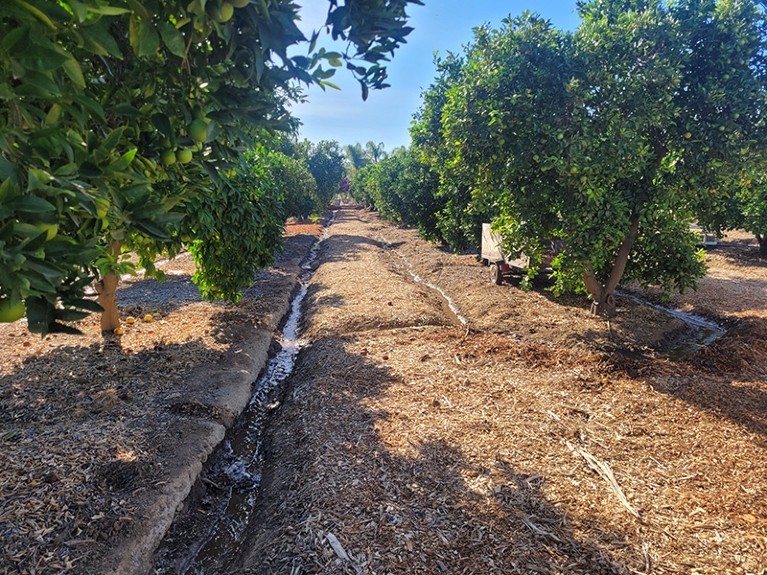
Students rally in Westwood, California, in protest against funding cuts and job losses in science.Credit: Myung J. Chun/LA Times/Getty
Research is under attack in the United States. The availability of grant funding from institutions such as the National Institutes of Health (NIH), the Centers for Disease Control and Prevention and the National Science Foundation (NSF) — especially for anything remotely related to diversity, equity and inclusion (DEI) — is now in question, at least for the next few years. This will result in many researchers having to find alternative income streams, or even leaving science altogether.
One of the programmes that I oversee on my campus was terminated last month. The Louis Stokes Alliance for Minority Participation (LSAMP) provided students from under-represented groups with extra funding and mentorship on a weekly basis. Now, fewer opportunities are available for these mostly first-generation students from low-income backgrounds and lower-performing schools. The funding was provided by the NSF, and supported professional development activities for emerging leaders in science, technology, engineering and mathematics. LSAMP is just one such programme; many more are on the chopping block.
How Trump is following Project 2025’s radical roadmap to defund science
Some states, including my home state of California, are being specifically targeted for large-scale funding cancellations, so things are escalating quickly. For example, a few weeks ago, the news outlet Politico reported that the federal government was considering cutting education and research funds for California, thanks to a continuing feud over immigration.
In total, billions of dollars’ worth of grants are being terminated. One colleague working for the US Agency for International Development has had their position ended. Another worked at the NIH as an adviser on health disparities and has also lost their job. Many of my colleagues at universities in California have had their grants wrapped up early, especially those who focus on health disparities and DEI. As a result, they have had to look elsewhere for financial support.

Brandon and his family have planted fruit trees, and he hopes that selling their produce could provide him with a secondary source of income should he lose his grant funding.Credit: Brandon Brown
The grant funding I receive from various sources covers part of my salary, which is guaranteed by the state because of my tenured position. But many states, including Hawaii, Texas and Ohio, are now considering bans and limits on tenure. If this were to happen in California, I would be particularly at risk given that my work focuses on health-disparity topics that are being targeted for cancellation: HIV, global research ethics and supporting emerging faculty members who are conducting research into the challenges faced by ageing adults in minority groups.
It would be naive to think that this won’t affect the job market: I expect many researchers to lose their salaries, jobs and health-care insurance as grants and funding dry up. This is already starting to happen. Frankly, it’s time for many scientists to start thinking about a career change, or at least how they might diversify their income streams to protect themselves against a loss of funding or a period of unemployment.
Many think that the current challenges will be reversed after a few years, but that is a long time to be without an income. And even if most scientists were able or willing to move abroad, it’s unlikely that there would be enough overseas funding to make up for cuts to science here in the United States.
One way to protect against these cuts might be to develop other streams of income while still pursuing a scientific career. Each of us has things we are good at apart outside scientific area of expertise. For example, my family and I have planted fruit trees and grown tomato plants, and we keep chickens that lay eggs, and my network allows me to sell those products. Other colleagues are generating cash from pet sitting and copyediting, working as a paid nanny or a personal chef, picking up paid teaching opportunities in schools and consulting for community-based organizations.



